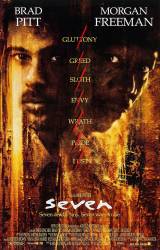
Question: When shaving their chests by the end of the movie, Mills and Somerset are joking and then Mills gets serious, says "You know...?" and then stops. What do you think he was going to say? Maybe he was going to be nice to Somerset, but then refrained himself?
Answer: I've seen se7en hundreds of times, and I've always wondered what Mills was trying to say to Somerset, and here's my take. If you've noticed, the recurring theme between the two was their conflicting views on how they see the world around them. Somerset is the grizzled, experienced detective who has been through the ringer, so he's views are more pessimistic in nature. Which I can sympathize with. Mills being the rookie detective that he is, was the optimistic, "I'll be the hero" kind of guy. So much so that Somerset called him out for being too Naive, and that he can't be like that. So getting back to the question at hand. During the chest shaving scene, I believe Mills was about to tell Somerset that his dark pessimistic view of the world around them makes sense. Mills wanted to say that Somerset was right, which he wasn't able to bring himself to do.
Answer: I've always wondered this question as well. I think he was gonna say something along the line of "you know I haven't talked to my wife all day And that's very weird." Especially since Somerset just said be prepared for anything while transporting Doe. Speculation at best though.
When Mills and Somerset enter the station building just before John Doe gives himself up the female desk sergeant tells Mills his wife had phoned this puts Mills' wife into the mind of the viewer. When Mills says to Somerset during the chest shaving scene 'if I keep coming home late my wifes gonna think something up' is placing Traci again in the mind of the viewer. Then Mills says 'You know?' prompts the question what has happened to Traci.
Answer: Since he stands for wrath in the plot, in the said scene he was probably going to acknowledge his short-tempered nature. He doesn't and therefore he looses a chance of confession. What say?
Could be right. He certainly has explosive episodes of anger throughout the film. He may, just for an instant believe himself to be wrath. I think he ignores the thought because he is always optimistic, caring and believes in good. Therefore, due to these virtues he cannot be wrath. Somerset, the calmer, more laid back character is the pessimist who sees evil everywhere. One would think he would be angry at the world. Maybe he was like Mills when he was younger.
Answer: I've also seen Seven hundreds of times. I've spent hours breaking down each and every scene inside my own head and I still have a hard time fathoming how insanely perfect the relationship Andrew Kevin Walker created between Mills and Somerset. Somerset's ability to pick up on the smallest comments Mills makes helps reinvigorate his passion for being a detective at a point in his career where he has all but given up hope for the world around him. Mills shows moments of vulnerability many times during the film but maybe not more so than the chest shaving scene. Personally I don't think his statement of "you know?" has any literal reference to anything physically happening in the story. I think he's merely gathering the courage to thank Somerset for his help, guidance and mentorship over the course of the past Seven days. I think he stops because he feels simply saying "thank you" will make him appear weak in front of a man he's no yet ready to open up to.
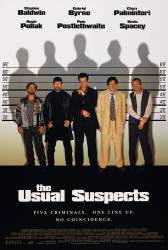
Question: How did Soze end up in the police station after he escaped the boat in the first place? If he had vanished after the bombing, he wouldn't have to make up the stories and he wouldn't have been identified by Kujan.
Answer: Kint/Soze ended up in the police station because he simply didn't get away in time.
Answer: Soze ended up back under arrest and for some questioning as 'Verbal Kint'. He never really vanished, he's just playing two parts/people. He really vanishes off the scene by the end of the movie after he tricks Kujan.
With the exception of what's known to have happened on the dock, the entire story is a lie told by Verbal Kint to Agent Kujon. Kujon realises this after Kint leaves the office but not in time to catch up. The entire movie is about a habitual liar making up a story about what happened on the dock. He may be Keyser Soze or an alter-ego variant but even Keysers rep is subject to question as it was told by the same liar. Verbal himself said about Keaton, "He was a grounded guy, a cop. If you think the husband did it then you're right." He was telling on himself as sociopaths will do when they think they're smarter than everyone around them.
Answer: All he had to do was kill them on the ship, blow it up, and leave. The whole BS story with the cops didn't even have to happen.
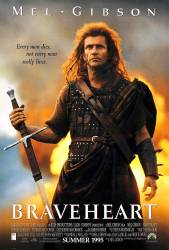
Question: Why does Wallace spit out the pain killer that the princess gives him?
Chosen answer: Just like he said, it would dull his wits and not leave him fully lucid the next day when he had to face the torture.
He wanted his full awareness so he didn't accidentally yell for mercy.
Answer: Because it's a reference to what his Father's last words to him were at the beginning of the film before he was killed, 'I know you can fight but it's our wits that makes us men'. That's why Wallace says to the Princess, 'It will dull my wits and I must have them always'.
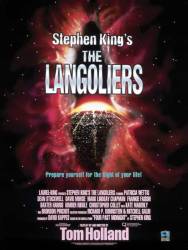
Question: Is there a reason why when they're in the past they can't catch up with the present, but when they land a little into the future, the present can catch up with them? Are they not moving along on their own timeline? And if not, why are they not left in that moment and stand there to see the present come and go without taking them?
Answer: Think of time as a gear with only one tooth, and think of them as a gear with only one notch. In the past, the one tooth has forever passed their notch and they'll never be carried along in the flow of time again. In the future, the tooth comes along, snags their notch, and they're back in the flow of time.
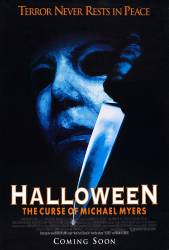
Question: Who is the father of Jamie's baby?
Chosen answer: In the extended version, it is revealed to be Michael Myers.
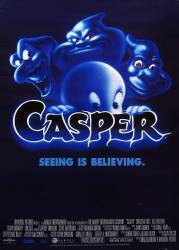
Question: What was the treasure? Because Casper says its just his baseball bat and glove, but then what does the note at the beginning mean that Carrigan and Dibbs find when the deed is thrown in the fire? Because it talks of treasure but its really only a baseball.
Answer: When Carrigan tosses the Whipstaff documents into the fireplace, one paper's hidden message appears on the back from the heat (if using lemon juice instead of ink, messages stay hidden and only appear when heated); it has a drawn map and handwritten "Buccaneers and buried gold, Whipstaff doth a treasure hold." Later, Casper tells Kat that he and his dad had great fun together playing pirates down in the lab, and Casper quotes the words from their hidden "pirate" message. So the handwritten note with map was actually part of their father/son beloved pirate-playing shared fun (note when the living Casper appears at Kat's party, he wears a piratey costume with a sword at his side). The pirate "treasure chest" contents were merely Casper's personal treasure: his glove and cherished autographed baseball, and it was kept in the lab's vault; even after Casper succumbed to pneumonia, Mr. McFadden kept it in the vault.
Answer: A machine that could bring dead people's ghosts back to life would be worth trillions of dollars. And that's why It was kept "secret" and hidden away from the rest of the world.
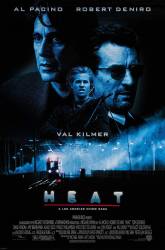
Question: In the scene right before the big bank heist, a detective comes into the situation room informing the team that a CI Hugh Benny had a tip about Neil McCauley looking at Far East National Bank. How the heck did Waingro (working for Benny and VanZandt) even know about this score? McCauley hadn't even discussed it with Kelso when Waingro took down the armored car.
Answer: Waingro helped Van Zandt track down Trejo. Waingro then tortured Trejo and threatened his family if he didn't give up McCauley. With his back to the wall, Trejo gave Waingro and Hugh Benny the details of the bank heist, but Waingro killed Trejo's family anyway and beat Trejo almost to death. Benny then gives the tip to the police on Van Zandt's order.
I wonder how Trejo was tracked, I don't remember his name being revealed during Waingro's time with the crew, or any other information.
Well, we never see the crew prior to their first heist. Trejo could have given Waingro his name during the planning of that heist.
Waingro met this crew only once. How would he know who Trejo is or where he lives? Right before the heist, Trejo is asked to mislead police away from the heist.
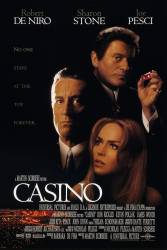
Question: Sam and Nicky both refer to "back home" but they do not explain where it is . I thought it was Kansas City because that is where the bosses are, but it's revealed that they are only there because "its as close as they could get to Vegas without being arrested". Does anyone know where in America Sam and Nicky are originally from?
Answer: Frank Rosenthal (the basis for Sam Rothstein) and Tony Spilotro (the basis for Nicky Santoro) were both from Chicago, so that is likely "back home".
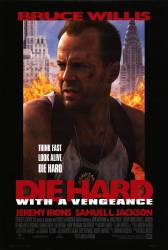
Question: I always wondered about this. As a cop, McClane knew about weapons. While handing over the machine gun to Zeus, he explained how it worked. But he did not tell Zeus to switch the safety catch off. How on earth could McClane forget to tell something crucial like that? Zeus isn't even pissed about it later on, while it could have cost him his life.
Answer: And Zeus mentions about brothers knowing how to shoot guns.
He said it was racist to assume that brothers know how to shoot guns. He admitted he didn't know how to use that model.
Chosen answer: A simple omission, in the heat of the moment he forgot to mention it. He may have thought, since he just took the gun off an enemy, that the safety was already off.
McClane probably did that intentionally as Zeus didn't know much about guns. In fact, you hear McClane say "Don't be a hero, you find him, you come get me."
Of all the possible answers, this is definitely not the one. There's no way he handed him the gun and then purposely did not tell him that the safety was engaged. There would be no point in that.
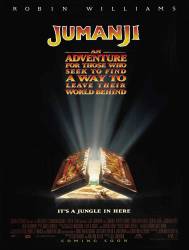
Question: When Alan has reached Jumanji, why were the bullet and rifle pulled into the game? They weren't from the game, but purchased by Van Pelt from a gun store.
Answer: The game is essentially "resetting reality" back to the point Alan was first sucked into the game. So it is undoing everything that has been done - including taking away the gun and bullets Van Pelt had purchased.
Answer: The gun and bullets may have been from the real world but they were Van Pelt's property. He purchased them at the gun store. Apparently the game pulls in Van Pelt and anything of his he was using to hunt Alan. It makes sense that the game would do this because Alan defeats Van Pelt by following the rules of the game. Having Van Pelt be able to simply purchase a gun in the real world and kill a player with it even after they've completed the game would be a huge cheat.
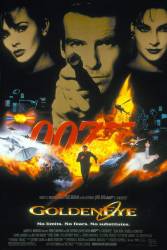
Question: If the opening scene was staged to get 007 to surrender, then it seems it was a terrible plan. Look how many Russians got killed by Bond and 006. It seems very awkward that the whole thing was staged. Why did Bond need to surrender? Why couldn't 006 just shoot him (besides the usual reason that 007 must be executed through an overly involved and escape-riddled plan) What would they do with him once he was captured? Too many questions and a weird scenario.
Answer: The plan was not to capture 007, it was to stage 006's death. Trevelyan's long-term goal was to steal money from the Bank of England and cover it up using the GoldenEye satellite - he presumably did not have time to run the Janus Syndicate and implement this very elaborate plan whilst serving as a full-time MI6 officer. In fact, it was probably the intention that Bond should escape and tell the British government that 006 had died a hero's death.
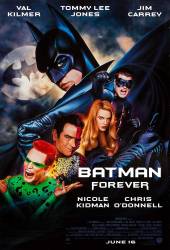
Question: At the beginning, when Batman breaks through the helicopter's window with his head, he tells Two-Face, 'Give it up, Harvey. You need help' or something like that. But this voice is totally not what Val Kilmer sounds like. The best I can come up with is that it's a stunt double or something like that. If anybody out there knows the real reason, I'd be happy to hear it.
Chosen answer: Batman talks like that because if he talks like Bruce Wayne (Val Kilmer's voice) his voice might be recognized, leading to Batman's identity being revealed.
Answer: I have noticed that as well. It doesn't seem like his voice is wrong, it just sounds like he says "give it up" twice at once or something. Maybe an issue in post-production.
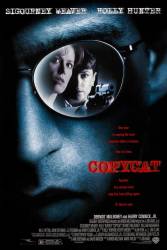
Question: Who is Conrad? Harry Conick, Jr.'s character writes him a letter at the end, and there is a Conrad character listed in the credits, but I haven't been able to find him.
Answer: I thought that it was Peter Kurten (Foley) that broke in and left the book. However if it was Conrad, then he does not appear in the flesh in the film.
You are correct. I just rewatched this tonight on Tubi.
Answer: Conrad is the man that breaks into Helen's flat and leaves the book. Happens just over 1 hour into the film.
Answer: I don't think Conrad appears in the film. Earlier in the movie HC Jr says he has other "disciples"; Conrad seems to be the new recruit to replace the just-killed McNamara character.
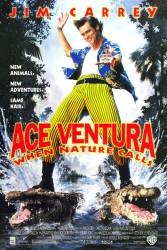
Question: Greenwall says that the warrior must stand on the tower for five days. Wouldn't he die of dehydration?
Answer: Not if somebody climbed up and gave him some water to drink.
Answer: As someone else said, somebody could give him water. The test might be more about staying in one place and denying himself the daily activities and pleasures of life - not having access to his usual amount of water and food.
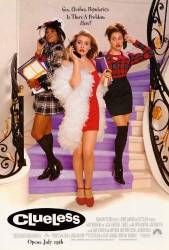
Question: What did Cher mean when she said, "this is a bigger disaster than Malibu"? What happened to Malibu?
Answer: Malibu is a hazardous place to live. It's constantly threatened by wildfires, which burn out the underbrush. Then when it rains, there's nothing on the ground to keep the mud from sliding down the hills, so mudslides are a problem, too. She was probably referring to one of the many times that this has happened.
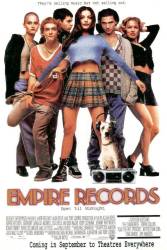
Question: What is A.J. doing when he burns Mark's CD? Why would he ruin his CD, if that's what he's doing?
Chosen answer: He is making sure the CD can't be played anymore because nobody really likes Mark's music.
I never understood that part because they were singing along to the song Mark chose to play.
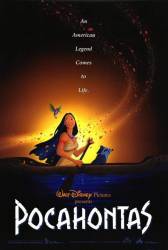
Question: What happened to the one Native American that Governor Ratcliffe shot? I know he went back to the village for treatment but what happened to him afterwards? Did he die?
Answer: This is a question the movie chose not to answer. It could be assumed he died as the Powhatans did not have the knowledge to treat gunshot wounds. However, there were cases even as far back as this time of individuals being able to survive gunshot wounds as long as the bleeding could be stopped and infection didn't spread. As the Powhatans did know herbs in the land to treat infections and did know how to mend bleeding; it is also possible he lived though he would have walked with a limp for the rest of his life.
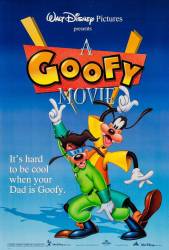
Question: I have looked all over the web for the wav of the sound Goofy makes whenever he is falling, which he does at least once in every cartoon he is in. It sounds like 'yah-ha-ha-hooey.' I have never found it, so can someone point me to where I might be able to download it?
Answer: Took about 1 minute to Google this: http://www.geocities.com/Hollywood/7451/sounds.html.
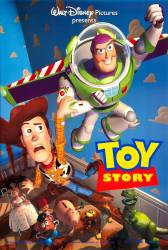
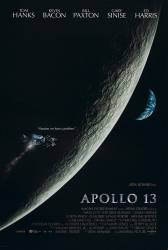
Answer: Baby face taps RR TOYS COME OUT. Telling the other toys to come out from hiding. Pixar stated this in their Toy Story character overview.
But why "RR"?
"RR" is shorthand for "Message Received." Babyface is telling Woody that he understands Woody's problem and then taps out to the other toys to come out.